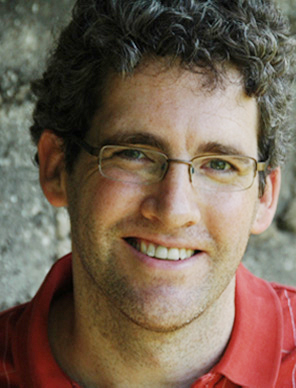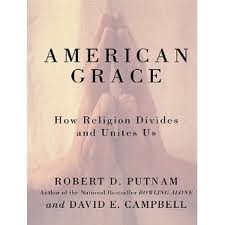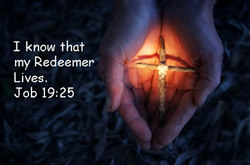You may have heard Kent Annan in the news recently, whether blogging for CNN about the first anniversary of the Haiti earthquake or describing the social perils of “poverty tourism” in the Huffington Post. As the co-director of Haiti Partners, an educational organization that founds schools and trains teachers, he’s acquainted with suffering, both before and after the quake.
His new book After Shock: Searching for Honest Faith When Your World Is Shaken (InterVarsity Press) walks readers through the 2010 earthquake and its aftermath, explaining what American Christians can do to help. But it also looks at how such deep suffering changes the faith of those who experience or witness devastating events. Since we are doing the Book of Job now in the Twible, I’m particularly interested in responses to suffering that don’t resort to the kinds of platitudes that Job’s “friends” offered. Annan’s voice is a wise one. –JKR
P.S. Please forward this interview to your friends. The money from every page view through the month of January, plus a matching grant from me, will go to Annan’s organization.
Flunking Sainthood: How do you begin to pray when over 230,000 people are dead?
Annan: For me, I could only find two prayers in those first days after seeing what had happened, as each moment the news got exponentially worse even when you thought it couldn’t possibly get any worse. The first was, “How long, O Lord, how long?” That refrain of several Psalms. This cry out for mercy, for compassion, for intervention, for anything, something, help. Among other things, I think that prayer is a longing for suffering to stop. It’s a prayer of faith, tinged with doubt. Mostly a prayer, for me in that moment, for people in Haiti and that God’s love to somehow be with them in the midst of it all. The second prayer I found myself repeating was, “Come, Lord Jesus, come.” Again this refrain of a prayer that is both faith and longing. For the suffering to stop–but not just to stop, but for people to know a better life, one more like they deserve, one more like I believe God wants for us.
What can you do when from a distance it looks like the entire country is homeless, living in tents and scavenging for food?
The situation was already overwhelming; 80% of people were living on less than $2 a day before the earthquake. And right now a million people are homeless or living in temporary shelters. The organization I co-founded focuses in Haiti on education, which is only one of many needs. Only half of children are able to attend school (pre-earthquake) and about 4,000 schools were destroyed in the earthquake. What do you do? Well, we’ve found it’s of course necessary to focus in on what you can do–and not let yourself be paralyzed by how much you’re not getting done. Easier said than done, but in our small way, I think we can accomplish a lot in our seven elementary schools, with the thousand-plus teachers we trained this year, through the network of churches we work with. Of course I wish we could do more, but I’m also grateful for what we’re able to accomplish. And all of us, in a way, have to do this in our own lives, wherever we live or work. It’s always impossible to respond to all the needs around you.
Where do you go for help when there seems to be no law or order?
Well, there is incredible vulnerability. But people also look out for each other. Each situation is really different. It’s hard, but it’s not anarchy. And it’s very different in a slum of Port-au-Prince and a rural area. Day-to-day life functions, people are selling and buying in the markets, many kids are going to school. So in some ways it’s worse than we can imagine–how hard life can be. But in another way, people are living their lives.
Where is God in all of this?
As I’ve spent the last year working on Haiti I’ve also been thinking and writing about this question. I’m reluctant to give a short answer that skips over the wrestling, the uncertainty, and the searching, because to me these are three key elements to taking on this question. But in short, it’s clear God does not save us from suffering like we want, which would seem to be good and necessary for a loving God. But God is with us in our suffering, especially as we look to Jesus in the crucifixion and resurrection. And I think God is also with us when we’re faithful in loving each other, because giving and receiving that love can certainly seem like the experience of God’s presence (and this is Jesus’ idea not mine!).
What does all this have to do with those of us living our lives in the U.S.?
In one way the scale and depth of disaster in Haiti is impossible for us to understand. It’s so far from our experience. In another way, though, each of our lives can crash down in an instant. A cancer diagnosis, a child’s accident, a million different things. So while Haiti is the context, I also write a lot about my life in the U.S., about friends and experiences here. These big questions of faith, doubt, suffering, and hope are human questions and relevant to all of us.
What can American Christians do?
It seems there are always two parts to answering this question: One, we need to get behind transformation for justice in places where their is a lot of suffering. And so getting involved with a good organization committed to Haiti for the long term is great. And there are so many ways to help: giving, praying, going, raising awareness, and so on. The second part is the need for transformation ourselves. There is the personal, spiritual part of this–and the societal. We shouldn’t look at suffering just as a problem “out there,” but [something] that in a way we’re part of, and we need God’s grace and love to keep changing us–so we can be part of changing the world. These are the big issues that go with the nitty gritty of getting involved with helping good organizations that are working in Haiti.


